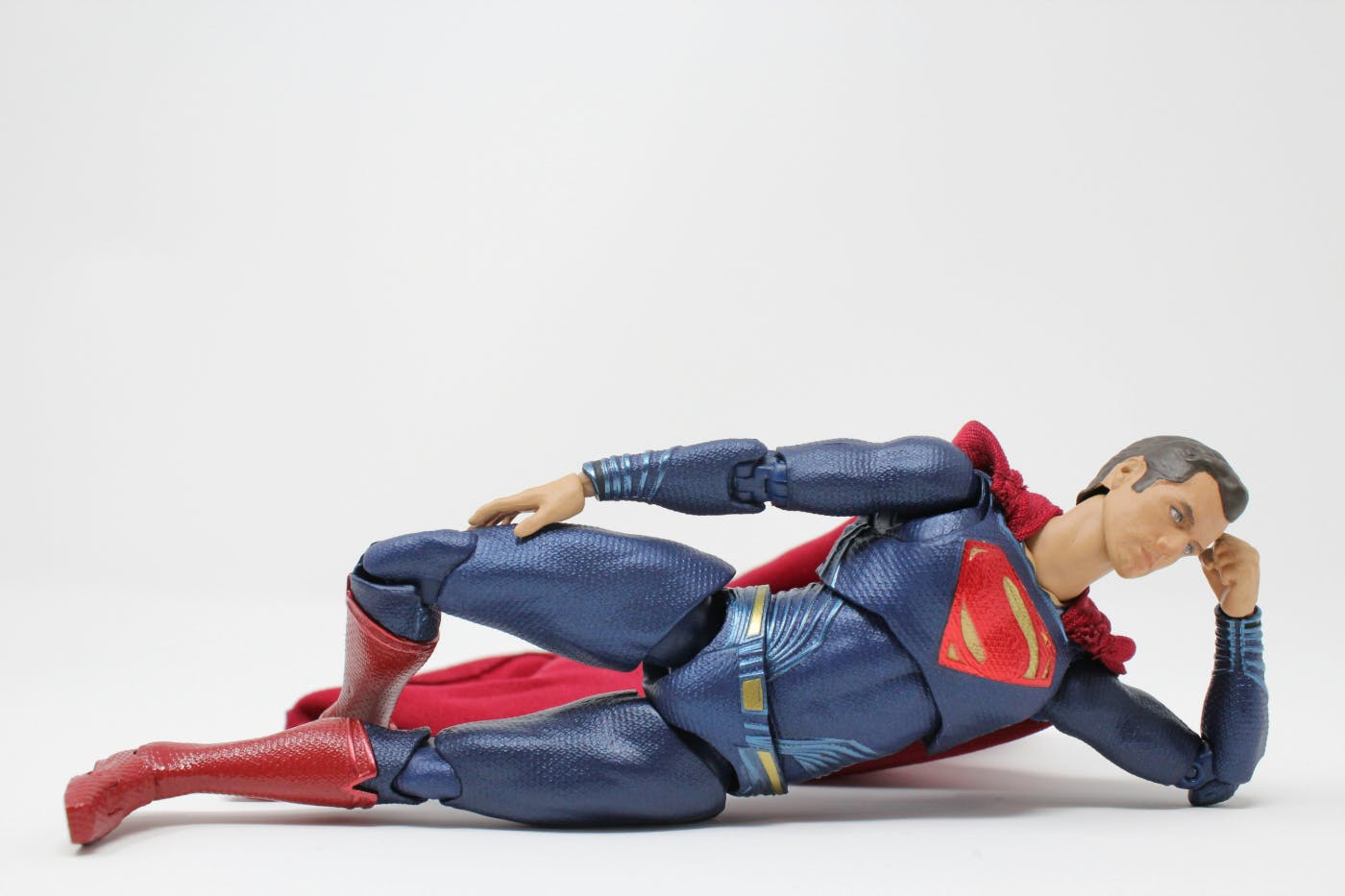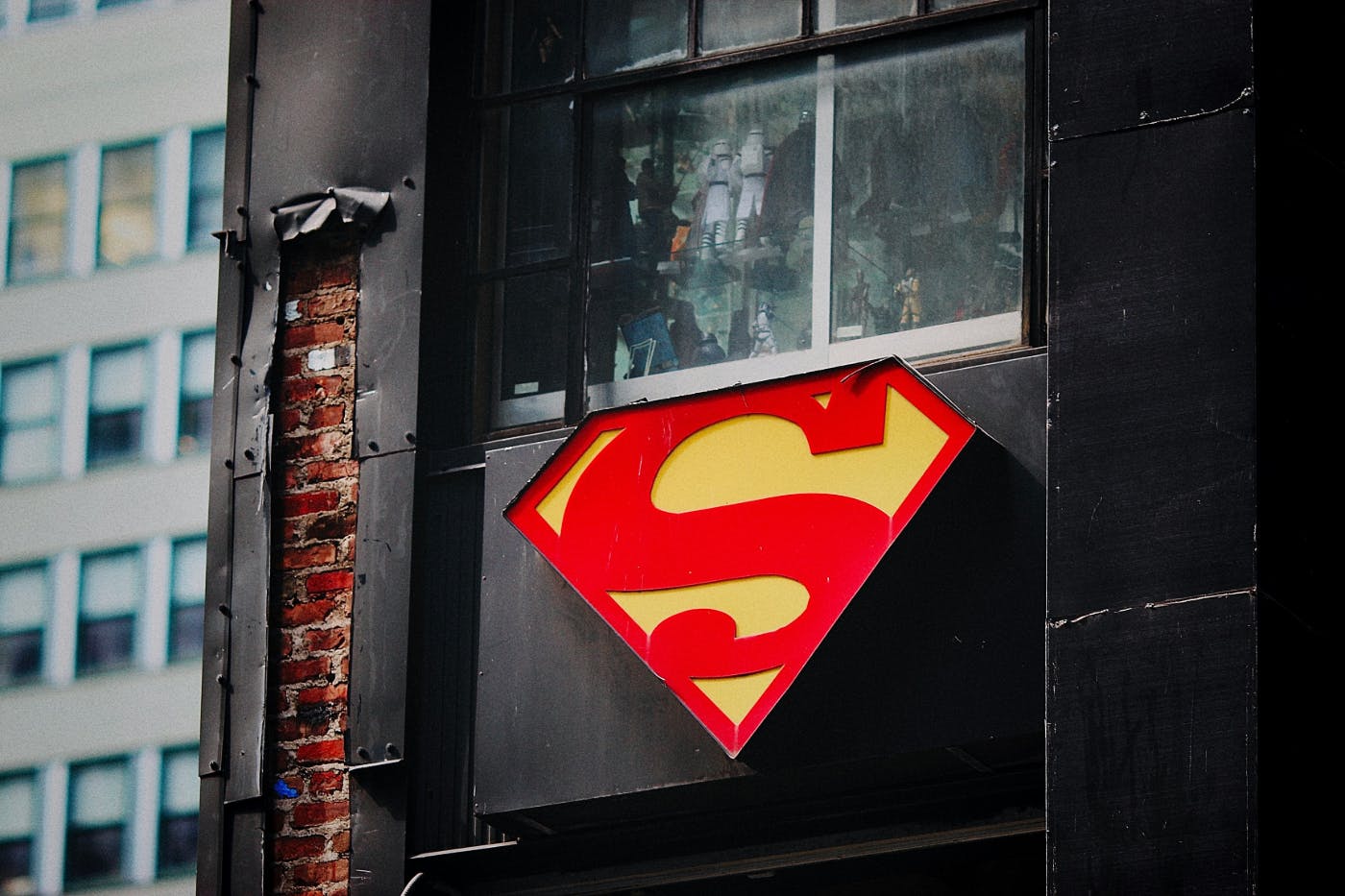
When we think of Superman, we don't just think about a man who can fly or lift cars. We think about the embodiment of an ideal—an unattainable but aspirational version of what we, as individuals and societies, could be.
Since his debut in Action Comics #1 in 1938, Superman has become one of the most iconic figures in pop culture. Created by writer Jerry Siegel and artist Joe Shuster, he represents more than just a superhero—he embodies an ideal. Superman is a symbol of hope, justice, and the power of doing what’s right, no matter the cost. Even today, more than 80 years later, Superman continues to inspire with every comic, film, and television series that features him. With the release of James Gunn's upcoming Superman movie in July, it's clear that this character will continue to evolve, yet his core ideals will remain at the heart of his story.
Superman has always been a reflection of something greater: the ideals that we strive for as individuals and as a society. But what makes him so enduring? Why do we, as humans, need ideals, and how do they impact our personal lives, our businesses, and our cultures? Superman’s longevity is not just due to his superhuman abilities but also to his representation of something that transcends mere fantasy: the ideal.
Superman: The Embodiment of the Ideal
When we think of Superman, we don't just think about a man who can fly or lift cars. We think about the embodiment of an ideal—an unattainable but aspirational version of what we, as individuals and societies, could be. Superman is the perfect combination of power and compassion, strength and humility. His unwavering commitment to truth and justice, his refusal to compromise his moral code no matter the circumstances, and his willingness to sacrifice for the greater good are qualities we often wish to see in ourselves. He is the best version of humanity, even though he comes from another planet.
Superman’s appeal lies in the fact that, despite being "super," he struggles with the same internal conflicts that we do. He wrestles with his identity as both a Kryptonian and a human, trying to balance his responsibility as a superhero with his desire to live a normal life. These struggles make him incredibly relatable, even though his powers are far beyond what any of us could dream of possessing.
For generations, Superman has provided us with a figure to look up to, someone whose ideals we can strive to emulate. He reminds us that while perfection is unattainable, the pursuit of it is worth the effort. In that sense, Superman is not just a superhero; he is an ideal to be reached for—a model of what we can be in our highest moments.

The Power of Ideals: Why We Need Them
Ideals are more than just lofty concepts; they are essential to our growth and motivation. An ideal is a vision of what we believe is the best version of ourselves, our relationships, or our world. These ideals provide us with direction and purpose. They shape our decisions, guide our actions, and help us determine what’s truly important.
In personal development, having an ideal to strive for can be a powerful motivator. If we didn’t have something to aim for, we might fall into complacency. Ideals challenge us to be better, whether it’s becoming a more compassionate person, a better leader, or a more effective communicator. The pursuit of an ideal is what drives us to break through our limits, push ourselves to grow, and continue evolving.
For instance, Superman’s ideal of justice—always doing the right thing even when it’s difficult—is something that can inspire anyone to take action, stand up for what’s right, and make positive changes in their communities. It gives us something to aspire to, and that’s powerful.
But ideals don’t just affect us on a personal level—they can also shape the cultures and societies we live in. When large groups of people share the same ideal, it can lead to sweeping social movements and cultural shifts. The American ideals of liberty and equality, for example, have shaped the nation for centuries. Similarly, Superman has become a symbol of hope and resilience, transcending national boundaries to inspire people around the world.
Why the Superman Ideal Will Always Be Around: The Power of the Story
The enduring appeal of Superman isn't just about his powers or his iconic red cape—it's about the ideals he represents. Throughout history, we’ve seen countless versions of Superman, from the earliest golden-age comics to modern reboots in films and TV shows. This story keeps evolving, yet its core remains the same: Superman embodies a sense of hope, justice, and the belief that even one individual can make a difference. But why does this ideal continue to captivate artists, filmmakers, and storytellers? And why is it likely that the Superman story will never fade away?
1. The Timelessness of Superman’s Ideal
The need for heroes who stand for justice, truth, and hope is universal and timeless. The challenges of the human condition—struggling with moral dilemmas, the pursuit of a better world, and the constant battle between good and evil—have remained largely the same over time. Superman’s story serves as a reflection of these themes, making him eternally relevant. No matter the cultural moment or historical era, the world can always benefit from the reminder that we can strive for something greater.
Superman’s ideal isn’t tied to any one place or time; it transcends them. Whether it's during a time of war, peace, crisis, or prosperity, the need for heroes who fight for justice is always present. This makes the Superman story adaptable and versatile—while the world around him changes, his ideals remain steadfast.
2. The Challenge of Perfection
Superman’s struggle to uphold his ideals in an imperfect world is part of what keeps his story alive. He is the perfect hero, but he isn’t perfect himself. He faces challenges in balancing his superhuman abilities with his very human experiences. This tension between perfection and imperfection is something every storyteller can explore in different ways, and it gives room for fresh takes on the same timeless themes.
Storytellers are drawn to this complexity. It’s easy to craft a perfect hero, but creating a character who grapples with the weight of perfection and the consequences of his actions provides depth. Superman’s constant struggle with his ideals resonates with people, especially in a world where many of us are faced with our own imperfections. We relate to his inner turmoil, his sacrifices, and his determination to live by his principles despite the cost.
3. The Appeal to Different Generations
Every generation has its own set of challenges and cultural moments, but the core ideal of Superman remains relevant across time. The 1938 Superman was born into a world on the brink of war, offering a symbol of hope and strength. The 1978 Superman film captured the optimism and ideals of the 1970s, while the darker, more complex Superman stories in modern films reflect the anxieties and uncertainties of today’s world.
For each generation, the way Superman is interpreted can shift, reflecting the issues of the time. Filmmakers, writers, and directors are continually drawn to reinterpret him for their audience, offering new insights into his character while still holding onto the central themes of hope, justice, and responsibility. Superman is not a static figure—he evolves alongside us. The adaptability of his character is why so many storytellers continue to explore his journey.
4. The Universal Desire for Heroes
At the heart of Superman's story is the universal desire for heroes. As humans, we are hardwired to respond to the idea of a hero—someone who represents the best qualities we wish to embody. Superman isn’t just a hero because of his superpowers; he’s a hero because of his moral compass, his compassion, and his refusal to give up, even when it seems impossible.
Artists and filmmakers are drawn to Superman because he represents the pinnacle of what it means to be a hero. In a world filled with complexities and uncertainties, the desire for a figure who stands for something pure and good is as strong as ever. Superman offers us hope that, even in our flawed world, there is still room for idealism and the belief that one person can make a difference.
5. The Exploration of Power and Responsibility
The theme of power and responsibility is central to Superman's character, and it’s something that resonates with nearly every audience. This theme taps into the age-old question: What do we do with the power we have, and how do we use it responsibly? Superman’s struggle with this question is something that any storyteller can explore, as it applies to all of us, whether we wield literal power or influence in smaller ways.
Filmmakers and artists love to grapple with this tension, exploring the consequences of absolute power and what it means to be a force for good in a world that often seems to reward those who abuse power. Superman’s story allows for rich, complex storytelling that deals with issues of authority, justice, and sacrifice. It’s a story that can be continuously told and retold with new layers and nuances, making it compelling for artists and audiences alike.
The Superman ideal will always be relevant because, at its core, it reflects the very best of what humanity can strive for. It’s a timeless story that taps into the universal human experience, one that challenges us to reach for something greater and to believe in the possibility of a better world. The many artists, filmmakers, and storytellers who continue to tell Superman’s tale do so because they understand this enduring appeal. Superman’s story is more than just one man’s struggle with power—it's about the ideals we all hold dear, and the never-ending pursuit of making the world a better place.

Ideals in Business: A Double-Edged Sword
In business, ideals can be both a blessing and a curse. On the one hand, a strong ideal can give a company a clear sense of direction and purpose. A business that stands for something meaningful—whether it’s sustainability, innovation, or customer-centric service—can build strong loyalty among its customers and employees.
Companies like Patagonia, Tesla, and Apple are great examples of how ideals can drive success. Patagonia’s commitment to environmental sustainability and ethical production has become its brand identity, while Tesla’s commitment to renewable energy has helped redefine the auto industry. For these companies, their ideals are not just words on a mission statement; they are core values that influence every business decision, from product development to marketing to customer service.
In these cases, ideals are a powerful motivator. They inspire employees to do their best work and attract customers who share similar values. The result is a strong brand identity, a loyal customer base, and long-term success.
However, chasing an ideal without considering practical realities can lead to problems. If a business becomes too focused on an ideal that’s difficult or even impossible to achieve, it can lead to unrealistic expectations and failure. For example, if a company promises to deliver the "perfect" product or service without the resources or infrastructure to do so, it could fall short of its promises and damage its reputation. Similarly, if a company becomes so fixated on its ideal that it ignores customer needs or market changes, it could find itself out of touch with reality.
There’s also the risk of burnout. If employees are expected to uphold a certain ideal at all costs—without room for mistakes or compromise—it can lead to exhaustion and disillusionment. Businesses must strike a balance between striving for their ideals and maintaining the flexibility to adapt to real-world challenges.
The Dark Side of Ideals: Can They Hold Us Back?
While ideals can motivate us to achieve greatness, they can also be a double-edged sword. The danger of an ideal is that it can be set so high that it’s unattainable, leaving us feeling discouraged or like we’ve failed. When an ideal becomes a rigid standard, it can create unnecessary pressure and make it harder to accept our imperfections.
Superman’s ideal of never compromising his moral code, always doing the right thing, and protecting everyone at any cost is a noble one—but is it always realistic? Sometimes, doing the right thing isn’t as clear-cut as it seems, and the consequences of that ideal can be enormous. This is part of the reason Superman’s character resonates with so many people—his constant struggle to maintain his ideals in an imperfect world makes him relatable.
In business, this same principle holds true. If a business strives for perfection without accounting for the inevitable mistakes or missteps along the way, it could lead to frustration and failure. The key is to balance ideals with pragmatism—striving to be the best without expecting perfection.

Can Anyone Be Superman?
Superman’s strength, speed, and ability to fly may be beyond the reach of most, but his ideals are not. While no one can literally be Superman, anyone can embody the values he represents. The true power of Superman lies not in his god-like powers but in his unwavering commitment to doing what’s right. He teaches us that we all have the potential to make a difference in the world, whether it’s in big ways or small ways.
In our personal lives, we might not be able to save the world or fly, but we can choose to live with integrity, compassion, and courage. We can fight for justice in our own communities and do the best we can to leave the world better than we found it. It’s not about achieving perfection but about striving to be the best version of ourselves.
This same principle holds true in business. Leaders who embody strong ideals—whether it’s commitment to their customers, their employees, or their values—can inspire others to follow suit. They may not be able to “fly” like Superman, but they can lead with vision, purpose, and authenticity.
Summing Up
Superman is much more than a superhero. He is a symbol of the ideals we hold dear—the values of justice, compassion, and selflessness. His story continues to resonate because he represents the best of what we aspire to be. Ideals, both personal and in business, serve as a guiding light. They push us forward, inspire growth, and motivate us to do better. But they must be balanced with reality, as chasing an unattainable ideal can sometimes hold us back.
In the business world, ideals can shape a company’s identity and drive success, but they must be grounded in practicality and flexibility. Like Superman, businesses can thrive when they stand for something meaningful, but they must also adapt to the changing world around them.
ThoughtLab embodies this very balance. With its focus on innovation and authenticity, ThoughtLab strives to bring forward ideas and solutions that are not just theoretical but impactful in the real world. Much like the ideals Superman represents, ThoughtLab’s mission is about doing what’s right, pushing boundaries, and making a meaningful difference. By staying true to its vision and adapting to the needs of the market, ThoughtLab exemplifies how a business can remain grounded in its ideals while thriving in a complex, ever-changing environment.

